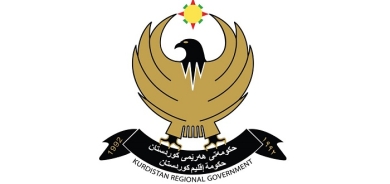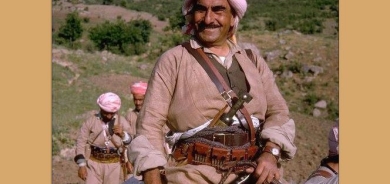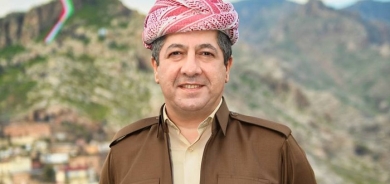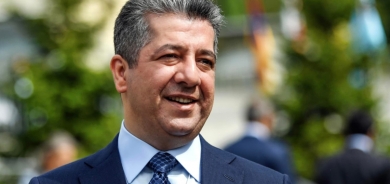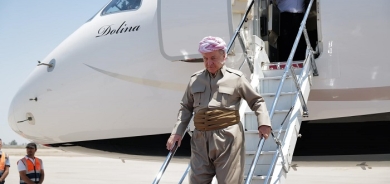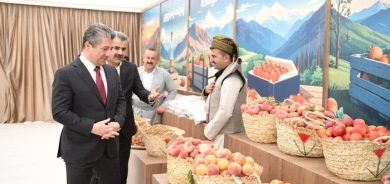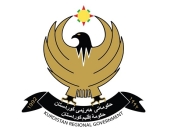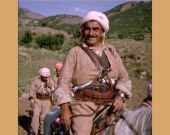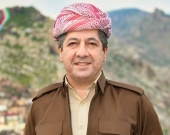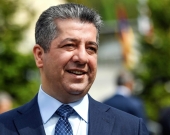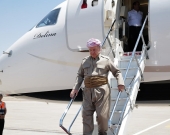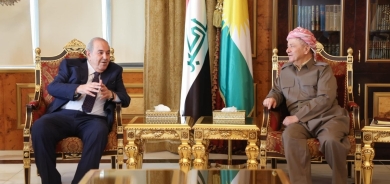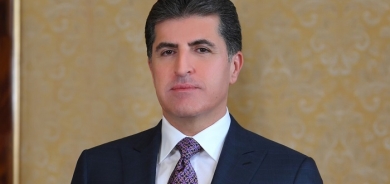American Withdrawal Covered for Political Reasons Despite bringing risks

Rashid Azzawi, an MP on the Iraqi Consensus bloc, told Gulan Media that this danger exists among all the Iraqis. "All Iraqi citizens have this concern, be they in south or north, Kurdistan Region or the other areas. We all are afraid of the return of dictatorship in a new look. Unfortunately, the disputes between the political parties provided a environment suitable for return to dictatorship. This is a very important issue. Democracy is not born in an overnight; democracy is culture which requires to be comprehended on all the levels of society, i.e., school, family, on street, in markets, etc. Our democratic culture is still not up to the necessary level. Citizens don’t know yet what rights they have in the democratic system, for instance, most of the citizens, compromise on their rights because of their safety and security. The politicians, media channels and civil society organizations spread real rights awareness among the people of Iraq. It’s a great unfortunate that after so many sacrifices and the shed of blood we once again return to dictatorship which has been proven in the entire world it is not in the people's interests.
Moreover, policy of ignorance and marginalization by the political parties still continue in Iraq. It even is practiced by those who fled Iraq during the Baath regime because of torture and imprisonment. It is like the replication of the former regimes policy; it is still in their mentality. Destroying policy has become a culture for the Iraqi politicians, as such who ever gets power, neglects the other and doesn’t the opposite party rights. We in Iraq need respects for each other by practice. As of regarding federalism, this was a solution suggested to Iraq in the early 1990s. If this had been implemented after the Iraqi withdrawal from Kuwait then now we could have lived together. Today that culture does not exist. We should acknowledge that the relations between the political parties didn’t exist during the former regime, but we were unable to manipulate for our good. We wished much stronger relations. The solution is for any community to run its affairs by itself, to divide the among ourselves resources which thanks God we have plenty, to see several elections together and to have cooperation and assistance between ourselves, for instance we should resort to our brother in the South and they for us. If we observe that federalism has many advantages for us, then we can continue with it. But today that we see a central government in Baghdad that is ruling all; it is unacceptable by the people, because it surely neglects the people. May in theory they believe that there is no difference between the Iraqi citizens, but when it reaches to practice and implementation, it quite opposite. I don't want to accuse anybody. I just say they cannot be just and implement equality."
Azzawi's words remind everyone that the actions of the central government of Baghdad are considered as unacceptable rule by the citizens. We asked Kazim Shamari, a MP on the Iraqiya bloc, if he has the same concerns. His response was: "We haven't seen true democratic practice in this country. Until today we see the shut of mouths and the annoyance of government by the demonstrations, and considering the opposition as terrorists or as outlawed people. All these have led to an unclear and ambiguous political image of Iraq and concerned us of having even a civil state- I mean we are even concerned of civil Iraqi state. For example, the religious men still have a large involvement in political affairs and they are being carefully listened to. Whenever the situation had become more complex especially for them, the government resorted to make consultations with the religious men, but when it was about their rights they didn't value any opinion of their religious men. We saw this with the case of Khuzeyr Khuza'I, when he was still a candidate for the vice-president position. All this concerns us about the democratic and general future of Iraq as a civil state.
Whether these efforts are the democratic system deficits, Shamari said: "There is a tendency towards authoritarianism and dictatorship now. We hope this tendency and feelings are not on the burden of Shiites, as all the thirty years incidents before 2003 were bestowed upon Sunnis. Therefore, I hope, neither Kurds nor Sunnis shall sense marginalization because if that happens, then if citizens of Samawa, Nassriya and Immara sense negligence and marginalization what should be called and who should be blamed? Because they really, really life a primary life, who takes the responsibility? If Kurds and Sunnis blame the government, then is this called "national partnership" government? Are we not all in the same ship? Angry citizens may destroy the whole ship and sink it any time possible. Those who feel sorry for the new Iraq should work for achieving the rights of people. Unfortunately, the same actions of Baath regime are being practiced with the opposition parties. In all those countries in the world who have suffered, charismatic leaders have emerged who have liberated their nations, for instance Nelson Mandela. But when Abdulkarim Qasim came and toppled the royal family, and later withstood the Baathists who later they stood again him, then the National Guards, then the Baathists, and then the Da'wa and etc. Until when the Iraqi blood is shed? Until when do we have to believe in vengeance? We need a Nelson Mandela who believes in Iraq, who believes in tolerance. Tolerance is a characteristic of a patriot. Our leaders have a great historical responsibility in providing our citizens with a prosperous and clear future, based on peaceful coexistence between the communities of this country."
Shamari also said that the current Iraqi government is unable to deliver services and cure the wounds of the country, or solve the problems between the communities.
In an interview with GulanMedia, Tariq Harb, the well-known Iraqi expert of law and constitutionalism, says differences are normal and they should be acknowledged. He said: "Differences are a natural thing. No two people are completely similar. It is the result of these differences that today negotiations and discussions exist. As a pro-democracy man, I support differences because we have abandoned a single designed ideology and perspective. Single party, single ruler and single opinion destroyed us. Let us allow people to voice their opinions, let's stop putting mask on their mouths, minds and hearts. Contrarily, what strengthens our democracy is our richness in our differences."
The risk of U.S. forces withdrawal
This situation that these MPs and political analysts describe is reporting the truth Iraq is going through. Professor Gerald Rosati, lecturer of political science and international relations at South Carolina University, spoke to Gulan Media about the U.S. forces withdrawal, saying: "May be my perspective is different than from other experts of U.S. foreign policy when they talk about the American forces withdrawal. For me, the withdrawal is partial; America does not leave Iraq. If one goes now to Baghdad, Green Zone area, which Saddam Hussein's palaces used to be there, you can see the largest U.S. embassy in the whole world there. In reality, this embassy is a city within a city, consisting of 30 skyscrapers overlooking the Tigris River. America is planning to stay in the near future. The forces that will stay is going to be reduced from 50,000 to 20,000-30,000. I don't think the number will get lower than this for several reasons. First, since the Iraqi army and police are not well-prepared to stay on their own feet; this is especially true for the Arab Sunnis and Shiite areas; the Kurdistan Region is quite safe and stable due to its autonomous status. This embassy will be a place for most American officials who will continue playing an important role in Iraq; surely they will from the U.S. Department of State, Department of Defense, U.S. Agency for International Development, and several other state institutions. The area of U.S. embassy in Iraq is seven times larger than the United Nation's headquarter in New York. There will be large military presence where most of the soldiers won't be in the embassy building. Rather they will be in the bases, although it has been proclaimed that they have been handed over officially to the Iraqi government. Second is that basically the civil servants work there, from the institutions I mentioned above. I don't know to what extend they allow the non civil servants to be there, but it won't surprise me to see the contractors largely there. America will continue in the civil way, so as to make agreements and contracts that will leave influence on the nation-building process and developing more democratic system. America does not withdraw; it stays, taking into consideration her enormous embassy. I am just back from Colombia which owns the world's third largest U.S. embassy. The embassy there appears like a infant comparing to the embassy in Baghdad. This large embassy allows America to have a larger physical presence in the future- I don't say it happens. "
The argument of Professor Gerald contradicts the formal U.S. announced withdrawal. Gulan Media asked for more clarification, he said: "The reason why America withdraws formally is that there isn't a united government that has one approach and works on this. It is formed from several different parties. The main goal for America, at least, is to reach an agreement, that allows America to have a official presence after the end of the year, which this includes the embassy, military bases and training camps, and other activities as well. Obama's withdrawal announcement was more rhetorical. It also was a message to the Iraqi government to function more actively. Looking at the American actions in the past eight years in Iraq, we can see that when the toppling of the regime ended, the U.S. was completely ready for what is called post-war reconstruction. But President Bush and his advisors, like Vice-President Cheney, Defense Secretary Rumsfield and his deputy Wolfowitz, they were not ready for the reconstruction process. Those studied conducted by the State Department, International Development Agency and the American military regarding those truths that succeeding in toppling the Saddam Hussein regime and occupying its country is not a difficult task, rather the difficulty lies with restoration of order and stability for Iraq. Bush, Cheney, Rumsfeld and Wolfowitz didn’t agree with each other on the method of this restoration. They just agreed on the occupation. Wolfowitz was been mentioned as a neo-conservative and the most optimists person who pays to building a liberal Iraq, which means a democratic and capitalist Iraq. I don't think Rumsfeld did pay that much attention. He paid importance what was called military evolution, such as conducting a more accelerated military operations. He paid lesser importance to the post-operation period. Maybe this is bound to Afghanistan, where at once they believed with Hamid Karazay on power things can work more easily, something we never saw neither in Afghanistan nor in Iraq. Bush hadn't any experience in foreign and defense policies and relied heavily on his advisors, and Dick Cheney supported the occupation. Many didn’t understand Cheney's position, because in the First Gulf War, Cheney- then the Defense Minister- didn't allow the American forces to go to Baghdad to topple Saddam Hussein. Surely many things happened between that war and the 2003 war, where Cheney, Rumsfeld and Wolfowitz became strong supports of the occupation. Colin Paul, if he hasn't stand against the occupation, then for sure he hasn’t supported it. He was more focused on the post-war reconstruction. And Condo Lisa Rice, which at that time was the National Security Advisor and later became the Secretary of State, was not a successful advisor, because during her duty she used to coordinate to communicate the advisors to the president. All her duty was doing bureaucracy for the president."
Translated by: Ari Mamshae

